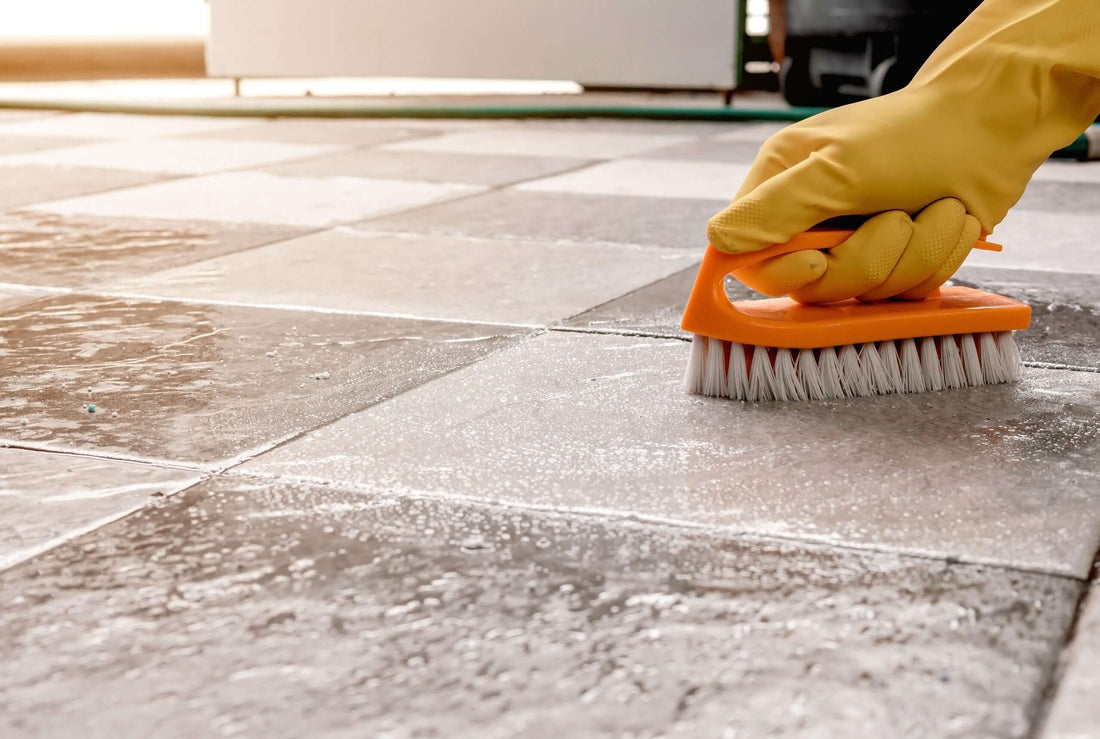
Porcelain Tile: A Timeless Choice? Weighing the Pros and Cons for Floors and Walls
Share
Porcelain tile has surged in popularity, gracing everything from kitchen backsplashes to expansive living room floors. Its reputation for durability and aesthetic versatility is undeniable, but is it the right choice for your project? Let's delve into the pros and cons to help you decide.
What is Porcelain Tile?
Before we dive in, it's essential to understand what porcelain tile is. It's a type of ceramic tile made from a refined clay mixture fired at extremely high temperatures. This process results in a dense, strong, and less porous tile compared to regular ceramic.
The Pros: Why People Love Porcelain Tile
-
Durability and Strength:
- Porcelain is incredibly hard and resistant to scratches, chips, and cracks, making it ideal for high-traffic areas.
- This robustness translates to a long lifespan, offering excellent value for your investment.
-
Water Resistance:
- Due to its low porosity, porcelain absorbs minimal water, making it perfect for bathrooms, kitchens, and even outdoor spaces.
- This resistance to moisture also makes it less prone to staining.
-
Versatility in Design:
- Porcelain tiles come in a vast array of colors, patterns, sizes, and textures.
- Advanced printing technology allows for realistic imitations of natural stone, wood, and other materials.
- This design flexibility empowers homeowners to achieve any aesthetic vision.
-
Easy Maintenance:
- Porcelain is easy to clean and requires minimal upkeep.
- A simple sweep and occasional mopping with a mild detergent are usually sufficient.
-
Frost Resistance:
- Because of the low water absorption rate, porcelain tiles can be used in outdoor applications that will be exposed to freezing temperatures.
-
Fire resistance:
- Porcelain tile is non-combustible.
The Cons: Considerations Before You Commit
-
Cost:
- Porcelain tiles tend to be more expensive than standard ceramic tiles, both in terms of material and installation.
- The higher quality and durability come with a premium price tag.
-
Installation Complexity:
- Porcelain's density and weight make it more challenging to cut and install.
- Professional installation is often recommended, adding to the overall cost.
-
Coldness:
- Like other tile materials, porcelain can feel cold underfoot, especially in colder climates.
- This can be mitigated with radiant floor heating.
-
Hardness:
- While the hardness is a pro for durability, it is a con for comfort. Standing on hard tile for extended periods can cause discomfort. Items dropped on porcelain tile are more likely to break.
-
Repair Challenges:
- If a tile does crack or chip, replacing it can be difficult, especially if the original batch is no longer available.
Porcelain Tile for Floors:
- Pros: Excellent for high-traffic areas, kitchens, bathrooms, and entryways.
- Cons: Can be cold and hard, requiring consideration for comfort.
Porcelain Tile for Walls:
- Pros: Water-resistant, ideal for backsplashes and shower walls, easy to clean.
- Cons: Installation can be challenging, especially for intricate patterns.
The Verdict: Is Porcelain Tile Right for You?
Porcelain tile offers a compelling combination of durability, versatility, and aesthetic appeal. However, the higher cost and installation complexity are factors to consider.
- If you prioritize longevity and low maintenance in high-traffic or moisture-prone areas, porcelain is an excellent investment.
- If budget is a primary concern, or you're looking for a softer, warmer surface, other options may be more suitable.
Ultimately, the best choice depends on your specific needs, budget, and aesthetic preferences. Weigh the pros and cons carefully, and consult with a professional to ensure a successful installation.
